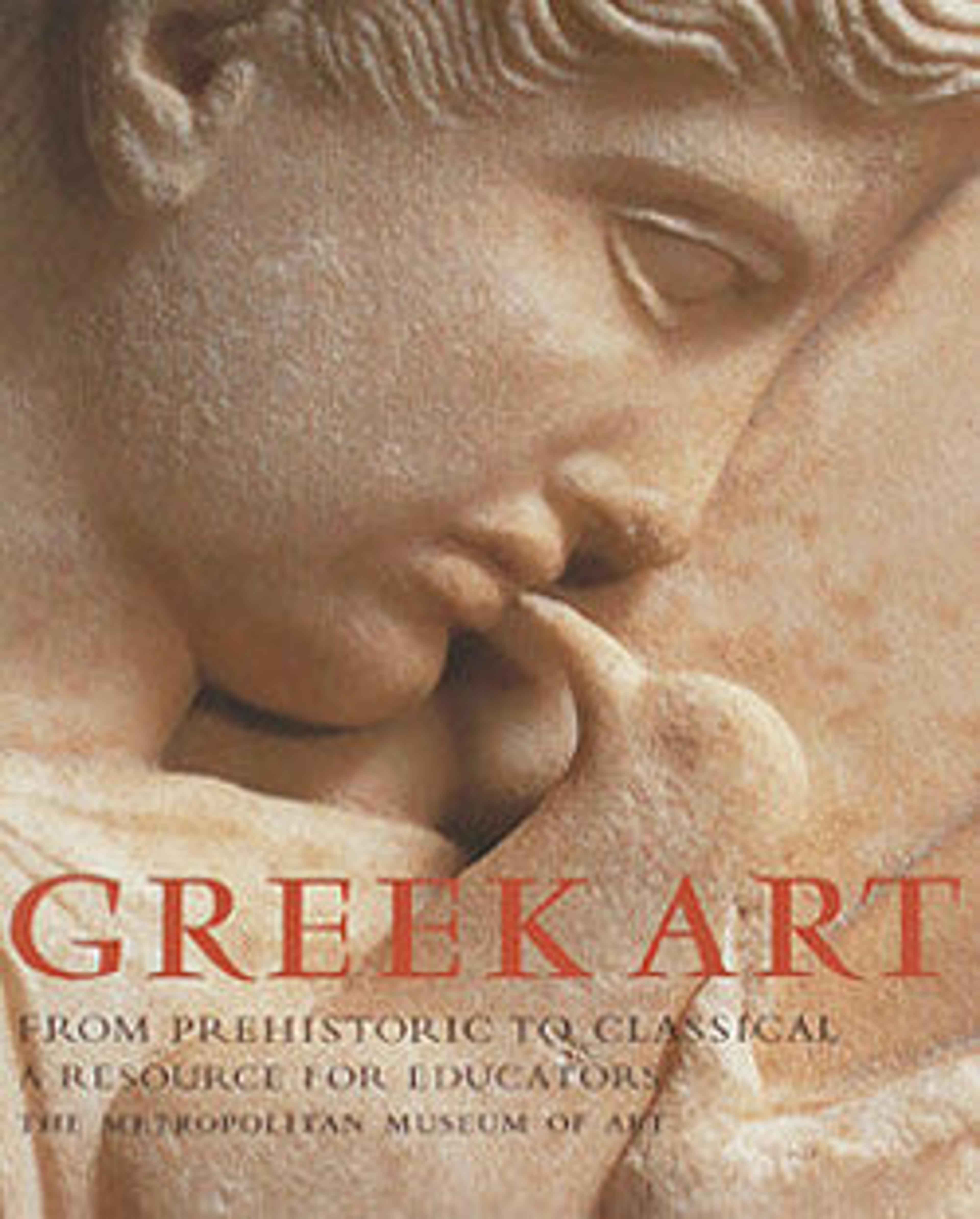Terracotta neck-amphora (jar)
Obverse, Herakles bringing the Erymanthian Boar to King Eurystheus
Reverse, Ajax carrying the body of Achilles
The Greek hero Achilles was killed at Troy by an arrow that pierced his heel, the only vulnerable spot on his body. Though shot by Paris, the arrow was guided to its mark by Apollo. After Achilles fell, a fierce conflict erupted for possession of his body. While Odysseus kept the Trojans at bay, Ajax carried the corpse back to the Greek encampment. Depictions of Ajax bearing his fully armed comrade always emphasize Achilles' weight. One can assume that a warrior's equipment weighed almost as much as he did.
Reverse, Ajax carrying the body of Achilles
The Greek hero Achilles was killed at Troy by an arrow that pierced his heel, the only vulnerable spot on his body. Though shot by Paris, the arrow was guided to its mark by Apollo. After Achilles fell, a fierce conflict erupted for possession of his body. While Odysseus kept the Trojans at bay, Ajax carried the corpse back to the Greek encampment. Depictions of Ajax bearing his fully armed comrade always emphasize Achilles' weight. One can assume that a warrior's equipment weighed almost as much as he did.
Artwork Details
- Title:Terracotta neck-amphora (jar)
- Artist:Attributed to the Antimenes Painter
- Period:Archaic
- Date:ca. 520 BCE
- Culture:Greek, Attic
- Medium:Terracotta; black-figure
- Dimensions:H. 14 5/16 in. (36.3 cm)
diameter of mouth 6 9/16 in. (16.7 cm)
diameter of foot 5 3/8 in. (13.7 cm) - Classification:Vases
- Credit Line:Fletcher Fund, 1956
- Object Number:56.171.20
- Curatorial Department: Greek and Roman Art
More Artwork
Research Resources
The Met provides unparalleled resources for research and welcomes an international community of students and scholars. The Met's Open Access API is where creators and researchers can connect to the The Met collection. Open Access data and public domain images are available for unrestricted commercial and noncommercial use without permission or fee.
To request images under copyright and other restrictions, please use this Image Request form.
Feedback
We continue to research and examine historical and cultural context for objects in The Met collection. If you have comments or questions about this object record, please contact us using the form below. The Museum looks forward to receiving your comments.
